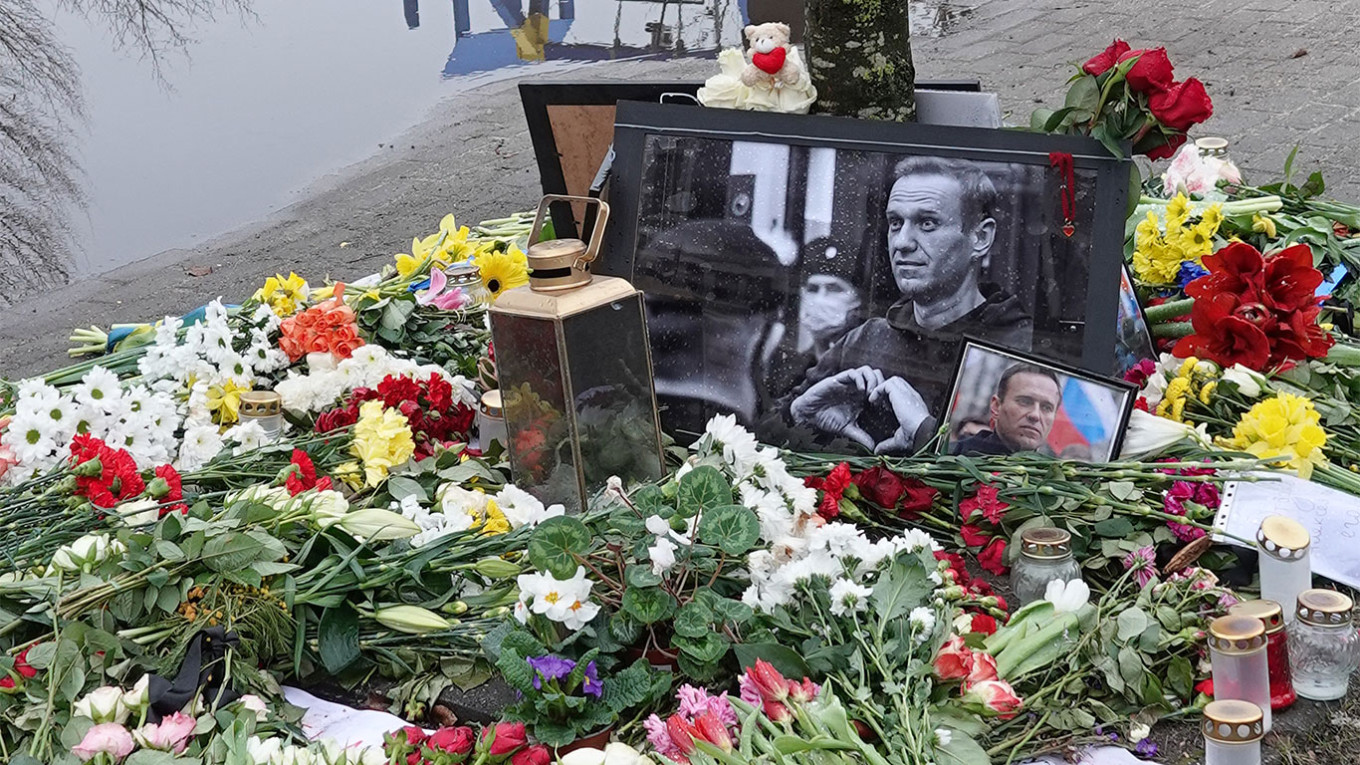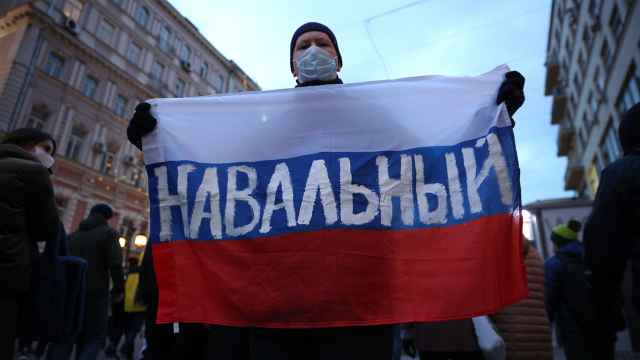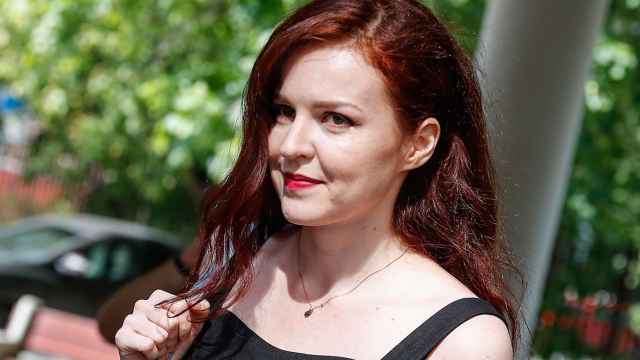Russia's most prominent opposition politician, Alexei Navalny, was murdered in a Russian prison on Feb. 16. As Navalny's team, along with his family, prepares to bid farewell to the politician, the rest of the anti-war Russian-speaking world is mourning a man described as last departed hope for a free Russia.
The work of the Anti-Corruption Foundation has done untold things for Russian society. In the 2010s it sparked many peoples’ political awakening, including my own. But now, in the aftermath of Navalny's death, he is becoming canonized on the Russian-language internet, the only place where Russians gather together regardless of whether they left the country or support the war.
There seems to have never been an appropriate time to criticize Navalny’s views, words, and actions. You could not do it in 2020, when he was poisoned. Then when he was imprisoned, he was still immune from criticism because he was a political prisoner. Now he is dead, this is more the case than ever.
Meanwhile, this text is not intended to criticize him, but to reflect on the complex and contradictory feelings that Navalny evokes among some representatives of Russia's decolonial movement.
Navalny was assassinated by the Russian regime. But his legacy still lives on in Russian anti-war society. A decolonial agenda that thought about anyone other than ethnic Russians was never part of Navalny's plan, nor is it ever likely to be after his death. Now that his widow Yulia Navalnaya is officially continuing his cause, it is necessary to talk about it. Because Russia is not only made up of ethnic Russians.
...I still support the Russian March as an idea and as an event. I am ready to help informationally or in any other way, but in the new situation I cannot participate myself.
– Alexei Navalny explaining in 2013 why he supported an ethno-nationalist march in Moscow.
For many of his supporters, Navalny's far-right, Russian-nationalist past is little more than an unfortunate blunder a youthful mistake, an unimportant page of history that can be easily skimmed over dismissing it as having happened years ago.
This is not surprising, given that most white Russians still do not (or refuse to) realize the scale of the problem that prevailed in Russia in the noughties — the flourishing of far-right nationalist groups and mass violence against all non-white people (mainly people from the republics of the North and South Caucasus, Central Asia and Asian republics of Russia). For example, in 2008 alone, according to the Sova research center and the Moscow Bureau for Human Rights, over 600 people were recorded as victims of ethnic hatred, of which 116 were murders.
Russian society has not sufficiently reflected on this part of their country’s modern history. No official mourning days have been introduced, nor have any systematic measures and practices to combat xenophobia and racism. Everything has been hushed up or politely omitted.
For many years, racialized non-Russian people were afraid to take to the streets of major Russian cities on VDV Day, People's Unity Day, and Hitler's birthday. The fear was not unreasonable, as; running into neo-Nazi groups could result in death.
For many, unfortunately, it ended that way. We do not have complete statistics on the beatings and murders that were committed in those years, because non-ethnic Russians were afraid to turn to the same law enforcement, fearing they would discriminate against them as mercilessly as the thugs they are supposed to apprehend.
Navalny, at that time already a public figure and active in local politics, not only participated in the annual Russian marches, but was twice a member of the organizing committee of a march that had a blatantly xenophobic message.
In 2007, he co-founded the national-democratic movement NAROD (National Russian Liberation Movement). According to the movement's manifesto, the state’s main task was to "stop the degradation of Russian civilization.” The movement's odious propaganda videos with "certified nationalist" Navalny explicitly promoted xenophobic, migrantophobic, and Caucasophobic - ideas.
To be fair, Navalny's far-right past and xenophobic statements and actions are not unique to him. Roscosmos director and official Dmitry Rogozin openly appeared at "Russian marches". Opposition politician Vladimir Milov openly supported the "Stop Feeding the Caucasus" campaign, arguing that the region exports corruption, crime, and the worst forms of authoritarianism to the rest of Russia". Public and political figure Mikhail Khodorkovsky said he would personally go to war to fight against independence movements in the North Caucasus. “This is our land, we conquered it. There is no unconquered land in the world today. The North Caucasus has been conquered by us.”
Yes, this was a long time ago. People may indeed have changed their views, which is perfectly normal. But it is also normal to talk about it publicly. It is important and necessary for politicians to reflect on their xenophobic past. Doing so is a sign of growth and open-mindedness – necessary qualities for those who want to assume public responsibility.
In 2018, Meduza journalist Ivan Kolpakov was accused of harassing the wife of a subordinate, after which he resigned from the publication. Public opinion in Russia has evolved over the years, and the risk of reputational damages has become strong enough to force powerful people out of their jobs.
But while the feminist agenda has achieved a measure of mainstream attention and support, the rights and problems of so-called national minorities are still considered unimportant. So indeed, for many white Russian women, the ultra-right-wing, nationalistic behavior of many Russian politicians today is nothing more than an unfortunate, inconvenient past. Unlike us, the people who have been directly or tangentially affected by this hate movement.
I recommend complete sanitation. ... Everything that hinders us should be gently but firmly removed by deportation.
– Alexei Navalny in a 2011 video for NAROD.
In explaining his position on the Russian March, Navalny appealed to concerns surrounding migration. It also became one of the main points of his campaign for mayor of Moscow in 2013. The politician's right-wing populist rhetoric on this issue had by then changed little from his speeches in the NAROD video clubs.
Yes, his language became softer and more considered, but he still launched xenophobic attacks against non-white migrants, especially those from Central Asia and the North Caucasus republics.
For example, Navalny promised to reduce the number of migrants in the capital by 70% if he was elected. He repeatedly justified this by claiming that half of the serious and especially serious crimes in the country are allegedly committed by them (in reality, of course, this is speculation, not supported by any official statistics).
In addition to incriminating 50% of all serious crimes in Russia against migrants, Navalny invoked the threat of terrorism, saying "Immigrants to Russia are 90% young Muslim men from rural areas [of Muslim republics in Central Asia], the very environment from which terrorists are recruited.”
Without commenting now on the extent to which these data correspond to reality and their economic justification, I will try to explain why I personally find this migrant-phobic rhetoric absolutely unacceptable for a Russian public and political figure.
Russia is home to about 190 ethnic groups, many of whom are indigenous and non-white. Multiculturalism in the country is supported only on paper and at rare events where people dance in national costumes and politicians give speeches about "friendship of peoples.”
In reality, the level of racism and chauvinism in Russia is still dangerously high. This includes the elevation of Russians as “state forming people” in the Constitution, the stigmatization of national republics and marginalization of non-Russian nationalities in the media, apartments that are only rented to Slavs, widespread hate speech, the lack of representation of indigenous peoples in culture. Russian nationalist movements are legitimized, but any similar movement by a minority group is immediately branded extremist. Unfortunately, the list of examples could go on forever.
What does migrant-phobic policy have to do with non-Russian citizens of Russia? The fact is that the radicalization of anti-migrant sentiments and the pedaling of right-wing populist ideas directly affects our quality of life because for the majority of white people in Russia we are no different from migrants. In many ways, this is a logical consequence of all the above examples of ethnic discrimination against indigenous peoples. Therefore, the discriminatory attitude towards migrants from Central Asia and the South Caucasus is an attitude towards us, too.
I do not cite here Navalny's derogatory comments about Georgians, as he officially apologized for them. That said, he did not recant his words of support for Moscow's actions in 2008.
The Russian regime committed the terrible crimes of Navalny's imprisonment and subsequent murder. It is just the latest of many that the Kremlin continues to commit against political prisoners every day for many years.
In January 2024, mass peaceful protests took place in Bashkortostan in support of Fayil Alsynov, a Bashkortostani public figure and environmental activist who was sentenced to four years in prison for political reasons. Law enforcement officers used violence to disperse protesters and then began to identify and prosecute the participants of the rally. To date, more than 160 people have been involved in administrative and criminal cases. Two people suspected in the so-called Bashkir Case have already lost their lives – Rifat Dautov and Minniyar Baiguskarov. Dima Davletkildin, who is now in pre-trial detention, was severely beaten by law enforcers.
Unfortunately, prominent members of the Russian opposition failed to provide solidarity and support to the victims of repression in Bashkortostan. The same goes for the Crimean Tatars, who make up 116 of the 182 political prisoners in annexed Crimea.
Right now, Zarifa Sautieva from Ingushetia and Zarema Musaeva from Chechnya are in detention. The same goes for Altan Ochirov from Kalmykia, Natalia Filonova from Buryatia, Alsu Kurmasheva from Tatarstan, Alexander Gabyshev from Sakha (Yakutia), and many other activists who receive virtually no media coverage except from regional and decolonial activists.
Yulia Navalnaya has also equated paganism with Satanism, saying in 2024 “What Putin is doing is hatred. No, it's not even hatred, it's some kind of Satanism, paganism." For all my sorrow, sympathy, and empathy for Navalny's family, I cannot help but feel bitter at how the words of a person to whom so many gazes and microphones are now — in tragic circumstances – pointed, adds to the stigmatization of non-ethnic Russians, most of whom follow a religion other than Orthodox Christianity. Many peoples of Russia practice shamanism, Tengrianism and other forms of polytheism, including traditional paganism.
With the systemic racial and ethnic discrimination already in place in Russia, conflating hate with paganism (and any religion in general) is disturbing. Especially when one considers how many non-Orthodox peoples there are in the country, some of whose representatives continue to resist the regime and deserve more attention and support.
Navalny's promised “beautiful Russia of the future” mainly implied a Russia without Putin and corruption. However, Putin is not the only one to blame for the current situation in the country or the war.
The aggressive dominance of so-called Russianness, dividing the country between righteous true Russians and supposed foreigners, believing some people to be more civilized than others, colonial extractivism, the protection of Russian people and culture, neglecting minorities in favor of the majority, everyday xenophobia, Islamophobia. Russian imperialism so deeply embedded in the regime that it would persist without Putin. It lies at the root of both Russia's anti-democratic behavior and the military aggression unleashed against Ukraine.
Does the Russian opposition, which constantly appeals to the Russian people instead of Russians, denigrates minority religions, and ignores the concerns of its non-white citizens, share these views? No. Hopefully not yet.
I also hope that Navalny's death will not lead to his canonization as a great martyr. Rather, I hope it will lead to more support for all political prisoners in Russia, and all anti-war Russian actors will band together on the grounds of increased repression. I hope people will consequently realize the necessity of listening to and working with each other, sharing institutional resources and platforms to amplify the voices of the oppressed, and thus truly democratize.
Otherwise, the “beautiful Russia of the future” may solve the problems of ethnic Russians living in central Russia, but it is unlikely to significantly improve the lives of indigenous peoples and people who live in the national republics. What is so beautiful about leaving so much of your country behind?
A Message from The Moscow Times:
Dear readers,
We are facing unprecedented challenges. Russia's Prosecutor General's Office has designated The Moscow Times as an "undesirable" organization, criminalizing our work and putting our staff at risk of prosecution. This follows our earlier unjust labeling as a "foreign agent."
These actions are direct attempts to silence independent journalism in Russia. The authorities claim our work "discredits the decisions of the Russian leadership." We see things differently: we strive to provide accurate, unbiased reporting on Russia.
We, the journalists of The Moscow Times, refuse to be silenced. But to continue our work, we need your help.
Your support, no matter how small, makes a world of difference. If you can, please support us monthly starting from just $2. It's quick to set up, and every contribution makes a significant impact.
By supporting The Moscow Times, you're defending open, independent journalism in the face of repression. Thank you for standing with us.
Remind me later.






